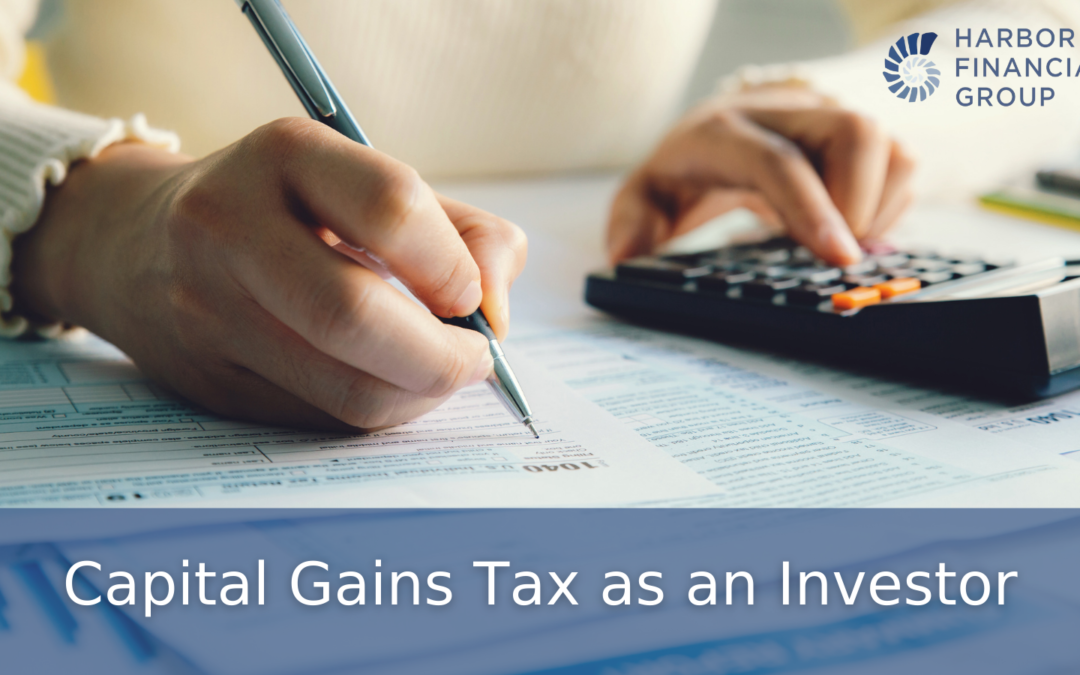As an investor, you may be impacted by capital gains if you sell your investment – whether at a gain or loss. Understanding capital gains may help with your overall investment strategy and the potential to preserve your wealth. Below are a few insights into capital gains to help you acquire competency on the subject matter in preparation for a consultation with a financial professional to review your portfolio.
What is capital gains tax?
A capital gain is a profit made from selling an investment. Capital gains tax is the tax you pay on that profit. Capital gains and losses are classified as long-term or short-term. Taxes are owed from the sale of most investments if they are held for at least one year. [i]
What are the capital gains tax rates?
Depending on your taxable income for the year, there are generally three (0, 15, and 20 percent) tax rates that most likely will apply to you, with a few exceptions: [ii]
0 percent – If your 2022 taxable income is less than or equal to –
- Single – $0 to $41,675
- Married, filing jointly – $0 to $83,350
- Married, filing separately – $0 to $41,675
- Head of household – $0 to $55,800
If your 2023 taxable income is less than or equal to –
- Single – $0 to $44,625
- Married, filing jointly – $0 to $89,250
- Married, filing separately – $0 to $44,625
- Head of Household – $0 to $59,750
15 percent – If your 2022 taxable income is –
- Single – $41,675 to $459,750
- Married, filing jointly – $83,350 to $517,200
- Married, filing separately – $41,675 to $258,600
- Head of Household – $55,800 to $488,500
If your 2023 taxable income is –
- Single – $44,626 to $492,300
- Married, filing jointly – $89,251 to $553,850
- Married, filing separately – $44,626 to $276,900
- Head of household – $59,751 to $523,050
20 percent – This applies when your taxable income exceeds the thresholds set for the 15 percent capital gain rate. [iii]
25 percent – This is sometimes applied with the sale of real property (real estate is a popular investment strategy).
28 percent – The taxable part of a gain from selling qualified small business stock (section 1202).
Also, the net capital gains can come from selling collectibles, for example, art (some people invest in art).
What is the difference between short-term and long-term capital gains and losses?
Typically if you hold an asset for more than one year before you dispose of it, your capital gains or loss is considered long-term. If you hold it for one year or less, your capital gain is short-term. There are a few exceptions, including property acquired by gift, property acquired from a decedent, or patent property.
What happens if there is a capital loss as opposed to a gain?
If your capital losses are greater than your capital gains, the excess loss that you can claim to lower your income is lesser of $3,000 ($1,500 if married filing separately) or your total net loss shown on line 16 of Schedule D (Form 1040). Claim the loss on line 7 of your Form 1040 or Form 1040-SR. [iv] If your net capital loss exceeds this ceiling, you can carry the loss forward to later years using the Carryover Worksheet.
Which IRS form do you use to report your taxes owed?
Most sales and capital transactions to calculate the capital gain or loss is done on Form 8949 (Sales and Other Dispositions of Capital Assets). [v]
The number calculated on Form 8949 is then reported on Form 1040, Schedule D, and then transferred to line 13 of Form 1040 (U.S. Individual Income Tax Return).
What is the best approach for reporting capital gains or losses?
Considering the complexity of the tax laws, how frequently they change, and how taxes can impact your investments and future strategies, it is highly recommended that you consult a financial professional.
Important Disclosures
Content in this material is for educational and general information only and not intended to provide specific advice or recommendations for any individual.
This information is not intended to be a substitute for specific individualized tax advice. We suggest that you discuss your specific tax issues with a qualified tax advisor.
All information is believed to be from reliable sources; however LPL Financial makes no representation as to its completeness or accuracy.
This article was prepared by LPL Marketing Solutions
Footnotes:
[i] Capital Gains Tax: What It Is, How It Works, and Current Rates (investopedia.com)
[ii] 2022-2023 Capital Gains Tax Rates & Calculator – NerdWallet
[iii] Topic No. 409 Capital Gains and Losses | Internal Revenue Service (irs.gov)
[iv] About Schedule D (Form 1040), Capital Gains and Losses | Internal Revenue Service (irs.gov)
[v] About Form 8949, Sales and other Dispositions of Capital Assets | Internal Revenue Service (irs.gov)
Tracking # 1-50346447


